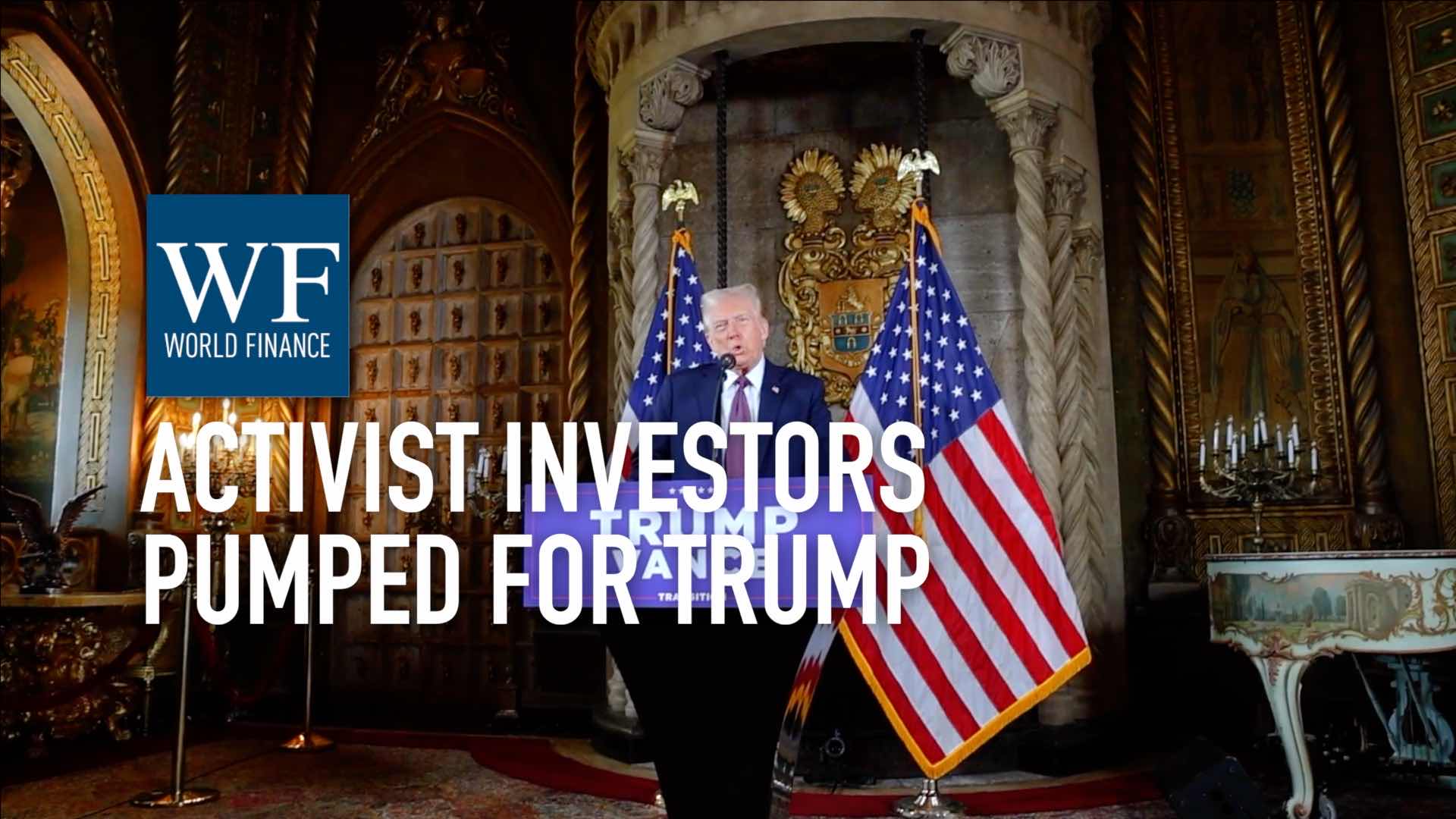Tim Harford on insider trading and incentives | Video
World Finance interviews Tim Harford, author of 'The Undercover Economist Strikes Back' on insider trading, and the bad incentives it can create
Related:
Transcript
Insider trading: is it the scourge of the market, or completely harmless? Tim Harford, author of The Undercover Economist Strikes Back, explains how the problem with insider trading isn’t about individual traders winning or losing because of inside information: it’s what people with power within a corporation might do if they’re allowed to trade.
World Finance: Tim, insider trading: is it as bad as it’s made out to be?
Tim Harford: Insider trading is one of those things that has a real appeal to financial journalists like me, and to regulators, and to anyone who wants to get cross about the City, or Wall Street, because it’s a financial crime that seems to be really easy to understand. And to be honest, there aren’t very many financial crimes that are easy to understand.
Insider trading: these guys knew something, and they took advantage of that secret information to make money, and took advantage of other people. And it just seems so straight forward! So that’s why I think it’s very appealing to write about it and talk about it and engage in these big whodunnits.
There’s just one problem, which is that it’s actually quite hard to figure out what harm insider trading causes. And I think one can make a case that it causes harm, but it turns out to be not as straightforward as you might initially think.
“The real worry is not the insider trading; it’s the way insider trading might generate a profit opportunity, that might itself then be damaging”
World Finance: Following on from your article on this, what were your initial thoughts when you went into this article, and did they sort of change, following research?
Tim Harford: Well I discovered new ways in which insider trading could be harmful, which is interesting. But I also had my initial view confirmed, which is that the reason people think it’s harmful is not the reason they think it’s harmful.
So, the reason you think insider trading is harmful, before you really think deeply about it, is… well. You want to buy shares, I own shares in a particular company, and I know that the profit report is just about to come out, and profits are bad, and the shares are about to fall. And I sell those shares to you, and then the next day the results come out, and the shares fall in value, you’ve lost money, and I’ve taken advantage of you. That seems to be straightforward.
But when you think about it you go, well hang on. You were going to buy those shares anyway. If you didn’t buy them from me, you’d have bought them from someone else.
I didn’t lie to you, I didn’t commit any fraud, I didn’t tell you the profits were going to be good. I didn’t phone you up and solicit your customer. It was just, you tried to buy shares – and you actually got a better price for the shares you were going to buy anyway because I was in the market selling them. So what’s the harm?
And in fact, that’s where you initially start. You go, gosh, this is quite tricky. So, what might the harm be? I think one form of harm that there is potentially in insider trading is the incentives to management. So, if you are an insider in a corporation, you know whether the shares are going to go up or down. If you were able to just constantly trade on that basis, well, there may be no harm in that. But then you actively acquire an incentive to make the shares of the company fluctuate up and down.
“You were going to buy those shares anyway. If you didn’t buy them from me, you’d have bought them from someone else”
You need to create surprises. Good surprises and bad surprises all the time. Because every time you create a surprise, there’s a new opportunity to make money from your insider trading. So it turns out that the real harm, I think, the real worry, is not the insider trading; it’s the way insider trading might generate a profit opportunity, that might itself then be damaging. And I think that’s a broader lesson for the way that we think about the city, and regulating financial activity, the way we think about regulating investment banks.
Often it’s not the superficial headline problem that is actually the problem. So, for instance, with performance related pay. The problem with performance related pay was not that people were being paid too much money, or that people were being paid money and they didn’t deserve it. The problem was – and economists knew this beforehand – performance related pay creates certain incentives to take all sorts of the wrong risks. So we’re actually paying people to cause damage. That’s the issue. So, there’s a broader lesson here, it’s not just about insider trading.
World Finance: All things considered then, do you think that maybe insider trading should be legalised to a greater extent? Because then I think other people could almost take advantage of this as well.
Tim Harford: Well, I think there are no simple answers. There is certainly a case to say that insider trading is really a civil matter. It’s a matter for an individual company’s corporate governance policies. And individual companies should take a view as to whether insider trading should be allowed or not by their directors, because that’s fundamentally the issue: what their directors and their managers go on and do if insider trading is allowed. And to be honest, I suspect that most large companies would ban it.
“Half of all insider trades are the trades that don’t happen rather than the trades that do. I simply fail to take action”
So I think there is a good case for that, that it’s an internal corporate governance matter. I think the main case for keeping it illegal is just to save trouble, and to say, just assume that all companies would ban it anyway, so who cares? But that case is not as strong as we might think. When you think about it actually, there are all kinds of insider trades that take place every day that never get punished. They’re the insider not-trades.
So, if I own shares and I’m about to sell those shares because I would like to buy a yacht, because I run a company, and buying yachts is what I do. And I happen to know that profits are good, and the shares are about to jump in value. I simply… fail to take action. I would have sold the shares, I don’t sell the shares. Then the shares go up in value, then I sell them. That’s insider trading. No one can find it, no one can punish it, no one can prove you were ever planning to do anything else. So it can’t be regulated. But half of all insider trades have got – by pure logical argument – have got to be the trades that don’t happen rather than the trades that do. And they’re legal because there’s nothing you can do to spot them.
“I think the main case for keeping insider trading illegal is just to save trouble”
World Finance: People are more savvy now when it comes to financial markets, so is the line being blurred between insider trading and people now just doing more research, or being more aware?
Tim Harford: Certainly there’s a less straight-forward line between amateur traders and professional traders, but I still think the professionals are always going to have an advantage. And I always advocate just a very simple, humble strategy.
I’m struck by the investment performance of the great John Maynard Keynes, the guy who invented macroeconomics. He had an absolutely terrible trading record for years. When he was trying to use his macroeconomic expertise, when he was trying to time the market and get in, and get out, and be very clever and forecast when the market was going to fall. If anybody could have done it in the world it would have been John Maynard Keynes, and he just couldn’t do it! And after about eight years of this he changed his strategy, and just went for a much more Benjamin Graham, Warren Buffett, almost passive investment. But value investing, just looking to buy and hold stocks that you understand, whose management you trust, really simple, no frills stuff. And just as Benjamin Graham did, just as Warren Buffett has done, achieved tremendous rewards.
So, if John Maynard Keynes cannot make macroeconomic forecasting deliver investment performance, then, you know. You can’t, I can’t, I don’t think anybody can. So maybe we all just need to… calm down, and show a bit of humility.

 Bora Pharmaceuticals and sustainability: The ethical expectation
Bora Pharmaceuticals and sustainability: The ethical expectation Prepare now for aggressive shareholder activism under Trump 2.0, says Kai Liekefett
Prepare now for aggressive shareholder activism under Trump 2.0, says Kai Liekefett
